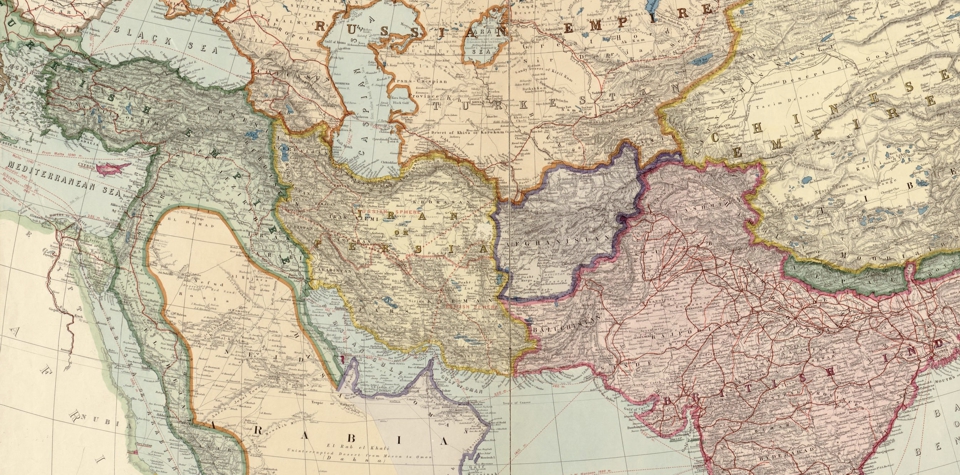Contemporary modal music
What is it?
Contemporary modal music is modal music composed close to the present day. Composers in the genre draw from related music traditions found in an area that stretches from the Maghreb in Northern Africa to the Uygur region in Western China, via the Middle East, the Caucasus, Central Asia and South Asia, and which extends into the Balkan and Iberian peninsulas in Southern Europe.
The main modal systems in this vast area include the Turkish Makam, Byzantine Echos, Arabic Maqām, Azeri Muğam, Persian Dastgāh, Turkmen Maqâm, the Uzbek and Tadjik Maqôm, the Indian Raga and Uyghur Muqam. The associated repertoires, styles and musical instruments are generally considered to be exclusive components of the cultural heritage and identities in their respective regions of origin. Contemporary modal music was coined as a cosmopolitan genre by Ross Daly. It allows practitioners to make use of traditional elements without appropriation or infringement.
[NL] Wat is hedendaagse modale muziek?
Hedendaagse modale muziek is recent gecomponeerde modale muziek. Componisten in het genre ontlenen inspiratie aan de onderling gerelateerde muzikale tradities uit een gebied dat zich via het Midden-Oosten, de Kaukasus, Centraal- en Zuid-Azië uitstrekt van de Noord-Afrikaanse Maghreb tot de West-Chinese Oeigoerse regio, en noordwaarts reikt tot in de Balkan en het Iberisch Schiereiland.
De belangrijkste modale systemen in dit enorme gebied zijn de Turkse Makam, Byzantijnse Echos, Arabische Maqām, Azerbeidzjaanse Muğam, Perzische Dastgāh, Turkmeense Maqâm, Oezbeekse en Tadzjiekse Maqôm, Indiase Raga en Oeigoerse Muqam. De bijbehorende repertoires, stijlen en instrumenten worden over het algemeen gezien als exclusief behorend tot het culturele erfgoed en de identiteit van de respectievelijke herkomstgebieden. Hedendaagse modale muziek werd als kosmopolitisch genre gedefinieerd door Ross Daly. Het biedt beoefenaars de ruimte om van traditionele elementen gebruik te maken zonder zich de achterliggende tradities toe te eigenen of er inbreuk op te maken.

Fragment of ‘A Map of the Countries between Constantinople and Calcutta – Including Turkey in Asia, Persia, Afghanistan and Turkestan’ (1912). Edward Stanford Ltd. (Westminster, London): 1 sheet at the scale of 1 : 6,969,600 (110 miles to the inch).
And what is modal music anyway?
A mode is a specific combination of notes (‘tonal material’) and characteristic melodic behaviours. Behaviour, in its turn, refers to combinations of tonal centre of gravity (i.e, a preference for the low, medium or high register), overall melodic pathway (i.e., the way the melody move through the registers, where it lingers and the way it comes to a conclusion), modulations (i.e., tonal variations used), down to intonation and typical phrases and embellishments. Modal music builds on melody and phrasing, and unlike most Western music it doesn’t use harmony. There is quite a bit of literature on the subject, but the best way to understand modes is to approach them through the repertoire. Let the music speak for itself, it will tell you all you need to know!
[NL] En wat is überhaupt modale muziek?
Een modus is een specifieke combinatie van tonen (‘tonaal materiaal‘) en melodisch gedrag. Gedrag verwijst op zijn beurt naar combinaties van het tonale zwaartepunt (d.w.z. een voorkeur voor het lage, midden- of hoge register), het algehele melodieverloop (d.w.z. de manier waarop de melodie door de registers beweegt, de rustpunten, en de manier waarop ze ze tot een oplossing komt), modulaties (tonale variaties), tot aan intonatie en kenmerkende frases en versieringen. Modale muziek is gebaseerd op melodie en frasering, en in tegenstelling tot de meeste Westerse muziek gebruikt ze geen harmonie. Er is flink wat literatuur over het onderwerp, maar de beste manier om modi te leren kennen is via het repertoire: als je de muziek voor zichzelf spreken laat, vertelt ze je alles wat er te weten valt.
Composers / Componisten
- Ross Daly (1952) – musician, composer, founder and director of Labyrinth Musical Workshop
- Nawras Altaky (1995) – musician, composer
- Nikos Andrikos (1982) – musician, composer, educator
- Cengiz Arslanpay (1989) – musician, sound artist, composer
- Christos Barbas (1980) – musician, composer
- Rachel Beckles Willson (1968) – scholar, musician, composer
- Michalis Cholevas (1977) – musician, educator, composer
- Telis Dimitrakopoulos – composer, musician, scholar
- Tristan Driessens (1982) – musician, composer, musicologist
- Peppe Frana (1986) – musician, composer
- Paul Goodman (1976) – musician, composer
- Michael Harrist (1987) – musician, educator, composer
- Michalis Kouloumis – musician, composer
- Efrén López (1972) – musician, composer, sound engineer
- Danai Loukidi – musician, composer
- Yorgos Mavromanolakis (1978-2018) – musician, composer
- Martha Mavroidi – musician, composer
- Thomas Meleteas (1993) – musician, composer
- Marina Liontou Mochament (1984) – scholar, composer
- Giorgos Papaioannou (1982) – musician, composer
- Andreas Paragioudakis (1980) – musician, composer
- Stelios Petrakis (1975) – musician, composer, luthier
- Vassilis Philippou (1991) – composer, musician
- Mehmet Polat (1981) – musician, composer
- Nizar Rohana (1975) – musician, composer, scholar
- Yasamin Shahosseini (1992) – musician, composer
- Sokratis Sinopoulos (1974) – musician, educator, composer
- Pavlos Spyropoulos (1984) – musician, arranger, composer
- Tev Stevig – musician, composer
- Wouter Swets (1930–2016) – musician, researcher, composer
- Viktoria Taskou – musician, composer
- Kelly Thoma (1978) – musician, composer
- Cihan Türkoğlu – musician, composer
- Michiel van der Meulen (1969) – geologist, composer
- Evgenios Voulgaris (1972) – musician, composer
(Please use the contact form to suggest additional composers)
Contemporary modal music by Michiel van der Meulen
- Ripplets / TouMilou #7, 2023 / single
- Erato / TouMilou #6, 2022 / album
- Európe / TouMilou #3, 2019 / album
- Pîrî Reis / TouMilou #1, 2017 / album
- Sheet music

